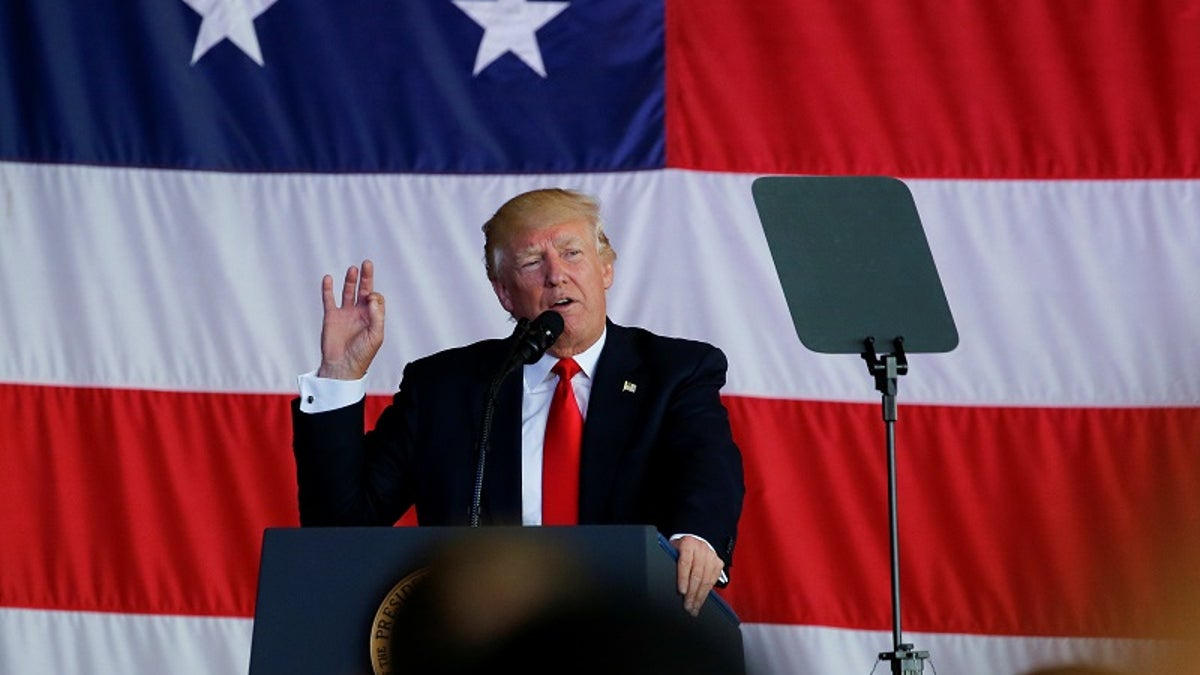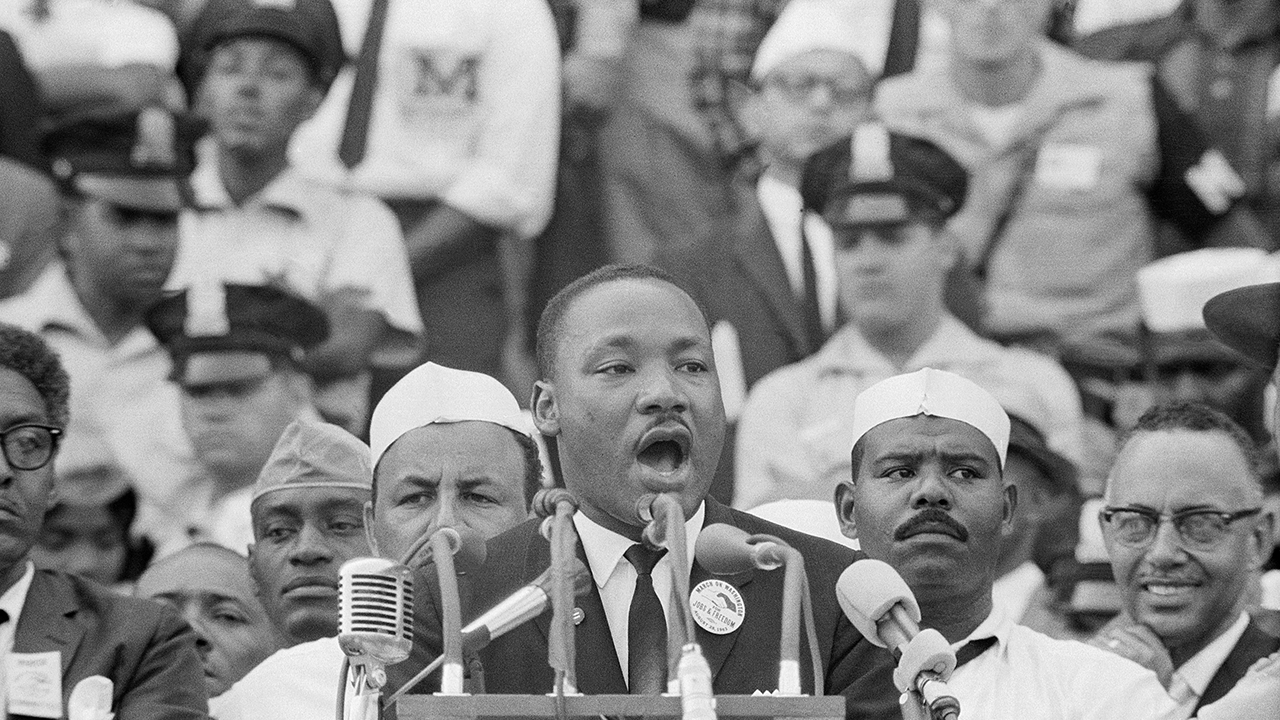
President Donald Trump delivers remarks to U.S. troops at the Naval Air Station Sigonella before returning to Washington D.C. at Sigonella Air Force Base in Sigonella, Sicily, Italy, May 27, 2017. (REUTERS/Jonathan Ernst)
The world from which President Trump returns on his historic trip to Muslim Saudi Arabia, Jewish Israel, Christian Vatican, and agnostic Brussels, is different from the world prior to his trip. Hope exists where it did not, because of this trip. This is not rhetoric. It is a fact.
Trump’s Middle East speech was ground-breaking. In Saudi Arabia, the heart of Islam, President Trump made a declaration as bold and defining as President Ronald Reagan’s unvarnished declaration that Soviet Communism would end up “on the ash heap of history” and was nothing less than an “evil empire.”
Said Trump: “This is not a battle between different faiths, different sects or different civilizations. This is a battle between barbaric criminals who seek to obliterate human life and decent people, all in the name of religion, people that want to protect life and want to protect their religion. This is a battle between good and evil.”
Bingo. Without prevarication or condescension, without self-blame or pretended empathy, pretense or parsed words, the president laid it all on the line. He gambled on truth. It worked. The Middle Eastern world, groping in a darkness of rolling terror, geopolitical tumult, deteriorating civil order and unsparing recrimination, suddenly stopped.
Leaders of the three major faiths paused, listened and responded – positively. Said the United Arab Emirates Minister of Foreign Affairs, “Bravo President Trump,” adding an “effective and historic speech defining approach towards extremism and terrorism with candid respect and friendship.”
Said Egypt’s President, Abdel Fattah al-Sisi after the speech, President Trump is “a unique personality that is capable of doing the impossible.”
Said president of the Palestinian State Mahmoud Abbas, standing beside Trump and talking of a peace accord, “I want to thank you [for inviting me to work on an] “historic deal to bring about peace,” adding “you have the desire to see it come to fruition …and to become successful.”
Said Israeli President Benjamin Netanyahu, “…for the first time in my lifetime, I see a real hope for change,” adding hope to “roll back… aggression and terror.”
The Vatican reported President Trump and the pope spoke of a “joint commitment,” including to “promotion of peace in the world through political negotiation and interreligious dialogue, with particular reference to … the Middle East and protection of Christian communities.”
In essence, like Reagan confronting the Soviets in June, 1982 and Churchill confronting the Nazis in May, 1940, Trump distilled the issue. He elevated global discussion, taking everyone with him to a unifying, catalyzing plane, articulating clearly the stakes shared by all countries, religions and people: Good versus evil.
As if on cue, and punctuating President Trump’s point, Islamic terrorists struck in Manchester, England – blithely and without conscience killing innocent children and parents, showing complete disregard for human life or morality, corroborating their inveterate evil.
Historic antecedents of the Trump speech are not hard to find. The most obvious is Ronald Reagan’s 1982 declaration of resolve to beat the Soviet Union, which “runs against the tide of history by denying human freedom and human dignity.”
Like Trump, he decried violence and domination of the human soul by evil, affirming a “conviction that freedom is not the sole prerogative of a lucky few but the inalienable and universal right of all human beings,” including freedom from terror and totalitarianism.
Similarly, in 1983, Reagan labeled the Soviets an “evil empire,” and in 1985 borrowed express language from John Foster Dulles, Secretary of State to President Eisenhower, to articulate his own revitalized “roll back” strategy – for ending permanently the spread of Soviet communism worldwide.
The outcome, we all know now, of Reagan’s clear thinking, personal courage, unbending resolve to end Soviet evil’s reach and roll it back, was just that – the Soviet Union and its evil underpinnings ended up “on the ash heap of history,” where Karl Marx thought democracy belonged. Reagan’s strategy, which he once joked was “we win, they lose,” proved prescient.
While history never repeats itself exactly, the lessons it teaches are forgotten at our peril. President Trump obviously is onto something. While he has an A-team of advisers inside the White House and more in his cabinet, bigger game is afoot.
What President Trump did on his first foreign trip was nothing short of miraculous. Peace does not come in one trip, faith is not sustained in one act, life is not changed by one speech, but the future is defined – has always been defined – by those who can envision, articulate, and work relentlessly to turn authentic hope into incontrovertible reality.
By all appearances, President Trump is trying to do that. We have not seen this kind of leadership in a very long time, not in the Middle East – not anywhere. Hope exists where it did not before this trip, because of his personal outreach, resolve and authenticity.
Now to the hard work.








































